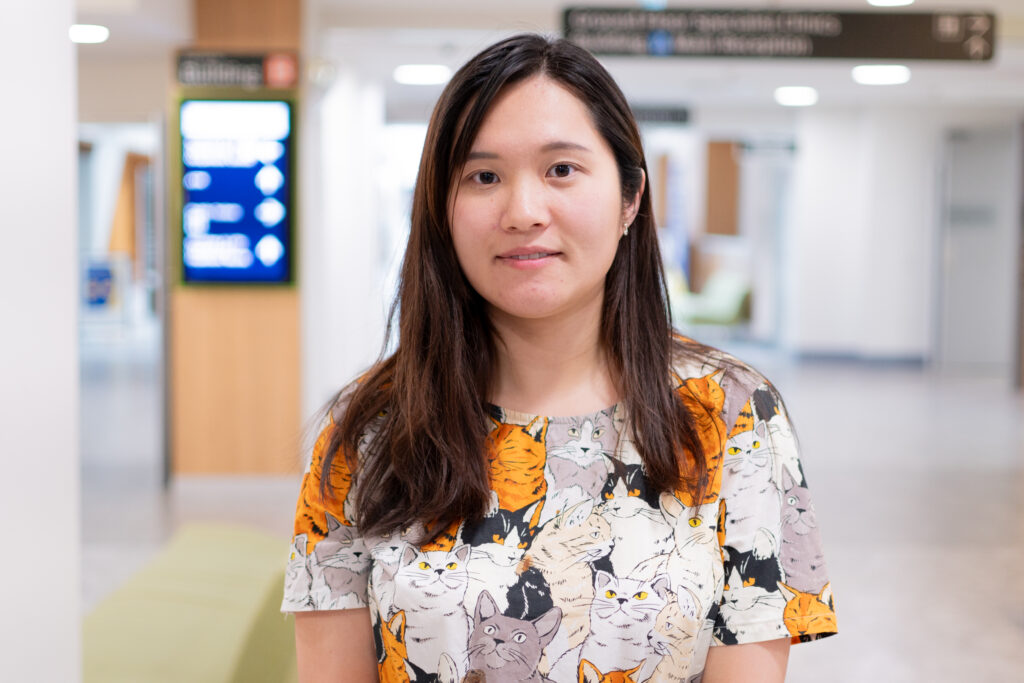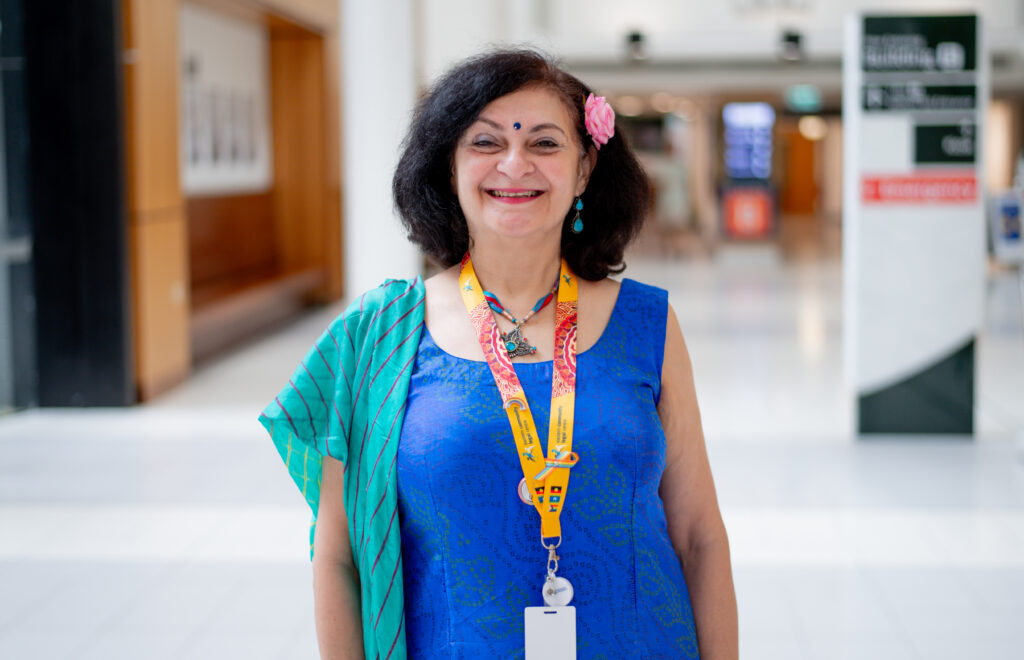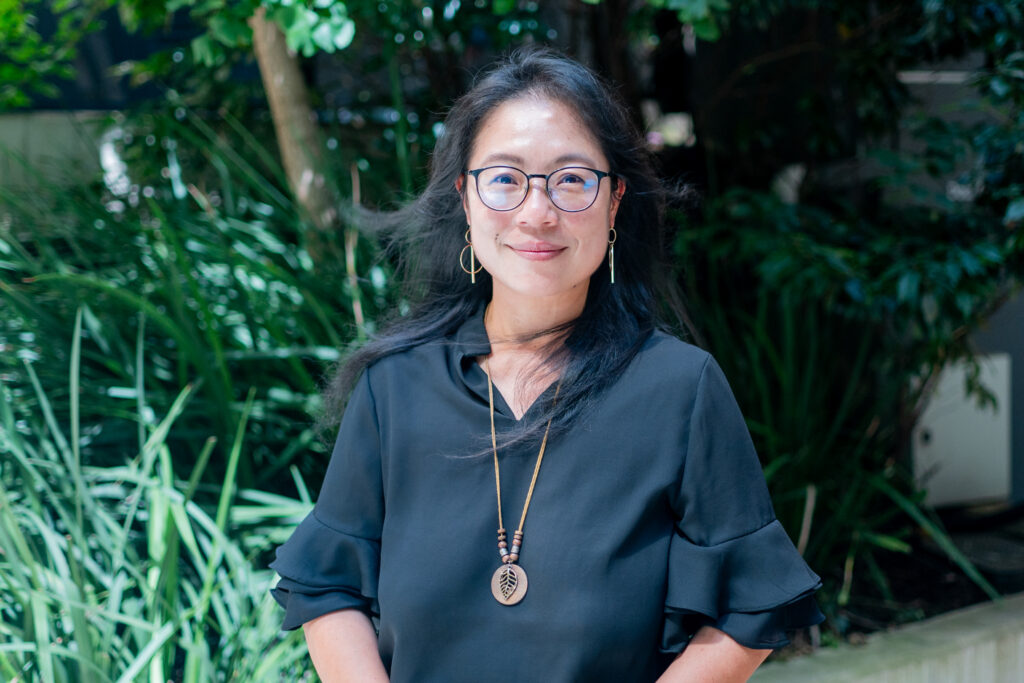Monday March 18, 2024
Cultural diversity fosters positive patient outcomes
Over 30,000 Eastern Health patients this year, will speak a primary language other than English, and helping them translate and understand their health care providers, is the role of the Language Services Team.
This Cultural Diversity Week (18 – 24 March) the Eastern Health Language Services Team is sharing some of their stories, highlighting how diversity in our workforce creates excellent care and experiences.
Jennifer Cui – Interpreter

When Jennifer Cui came to assist a Chinese family in palliative care, she knew she would have to bring both her language skills and understanding of culture.
The bedridden woman’s partner was understandably worried, asking Ms Cui to translate in gentler terms as not to alarm his wife of her condition.
“I couldn’t imagine how hard it must’ve been for him, having grown up in a culture that practiced love and care by managing the difficult truths, now thrown into a brutally honest Western culture of ‘the patient has the right to know’,” Ms Cui said.
Matching his hushed tone, she assured the man that she would let the clinicians know about his wishes, but will need to interpret everything that is said accurately.
“Sometimes, a patient’s family members would refuse using interpreters to hide truths they deemed unfit for their loved ones to hear and bear. The clinician, the man and I, later stood outside the wife’s room and spent some time getting to understand each other better.
“After we entered the room, I cannot recall the exact words the clinician used, but it must’ve all been very gentle, because when I repeated those carefully chosen words, as precisely as I could, the man standing beside his wife’s bed smiled, and so did she, lying there, eyes closed, breaths shallow, sunlight on her face.”
Dilnaz Billimoria – Consumer Representative

Dilnaz Billimoria made the decision to move to Melbourne more than 20 years ago. Serving as a caregiver for her elderly parent from a culturally and linguistically diverse (CALD) background, she spent a significant amount of time at Eastern Box Hill.
“During these visits, I consistently witnessed the compassionate nature of the staff members. They made sure to communicate clearly with my mother, making sure she understood all information and provided reassurance that ultimately led to positive outcomes,” Ms Billimoria said.
Her experiences at the hospital prompted reflection on the diverse population within the Eastern Health catchment area and the unique healthcare needs that stem from this diversity.
“As a volunteer, faith and community leader in the Eastern Metropolitan Region, I felt compelled to take the next step and offer my perspective as a representative of the CALD community by joining the Consumer Advisory Committee (CAC) at Eastern Health.
“Now, I find myself playing a pivotal role in shaping the Eastern Health Strategic Plan and advocating for culturally sensitive policies. Building upon my involvement with the CAC, I eagerly volunteered to serve as a Consumer representative on the Diversity, Equity, and Inclusion (DEI) Committee. It has been truly inspiring to witness the implementation of various initiatives that aim to address the intersectionality of factors such as age, gender, faith, and culture for the benefit of staff, and consumers.”
Learn more about Dilnaz and her culture:
Lydia Tsai – Interpreter

Lydia Tsai encounters consumers in various settings who often express gratitude for the assistance she provides. Her work not only bridges language barriers, but also eases and brings consumers comfort in what can be a daunting environment.
“One patient’s story stood out to me. We first met at the Peter James Centre gym where she was recovering from a stroke. I witnessed her determination to regain her strength and over time, she shared her love for hiking and photography, and we celebrated her progress,” Ms Tsai recalled.
The patient later developed cancer and Ms Tsai continued supporting her during this challenging journey. Despite some health setbacks, the patient remained open and trusting of Ms Tsai, inspiring her to improve her interpreting skills.
“As her health declined, I saw her name appear on my list for palliative care, and while I prepared myself mentally, we shared a poignant moment as she recognised and appreciated my presence. We discussed her fears and found solace together, concluding with a prayer. Though it was difficult to say goodbye, I felt privileged to have accompanied her during her most trying times, reaffirming the value of my role as an interpreter.”
If you need any assisting accessing language services click here.
